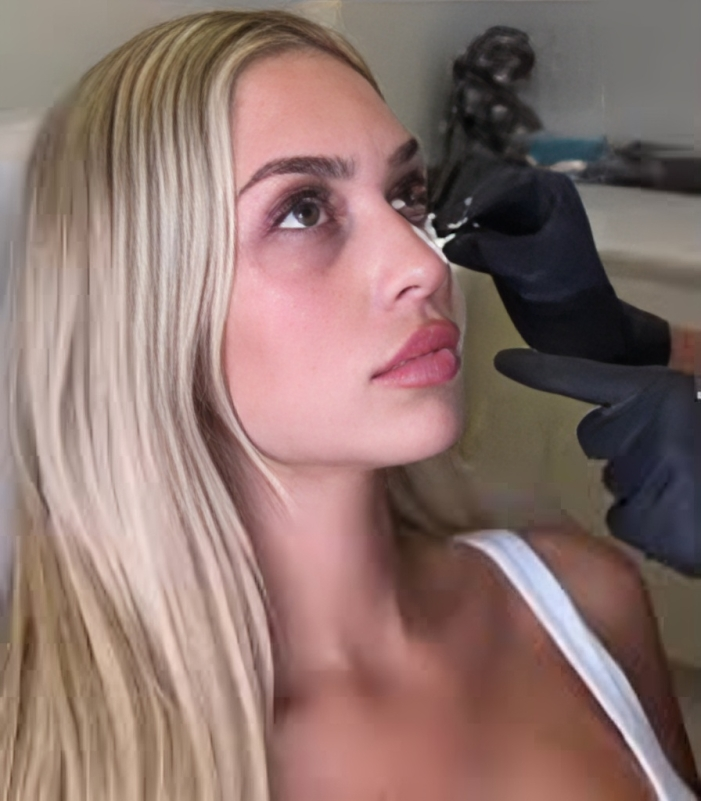
An old beauty trend called mesotherapy, which involves injecting substances under the skin, is making a risky comeback.
Mesotherapy is a cosmetic procedure where small needles inject a mix of vitamins and minerals under the skin to reduce wrinkles, tighten skin, and lessen fat. It has been used for decades in other countries and is now gaining popularity in the US. While it’s commonly done under the eyes, it can also be used on the hands and stomach.
After the procedure, small raised bumps appear on the skin, giving it a honeycomb-like look. Some say it even makes the skin look “reptilian” before the bumps settle.
Doctors warn that although mesotherapy is advertised as painless with quick recovery, it carries serious risks. Dr. Viktoryia Kazlouskaya, a dermatologist in New York, cautions that unregulated procedures can lead to bruising, allergic reactions, skin damage, or even permanent eye injuries.

Another concern is that each technician uses their own mix of fluids, and these are not tested or regulated in the US like Botox. Some may even use counterfeit products, increasing the risks.
Mesotherapy started in 1952 in France as a treatment for blood vessel and immune issues. Over time, it has been marketed for problems like hair loss, psoriasis, and fat reduction.
Despite its popularity, the FDA has not approved any mesotherapy treatments for use on the face. Experts say the procedure’s rise is due to its low cost and ease of use, with many people attempting it at home after seeing videos online.
However, DIY and unskilled procedures can lead to serious issues like infection, scarring, or granulomas—small tissue collections caused by the immune system reacting to foreign substances.
Dr. Tripathi, a plastic surgeon, emphasizes that under-eye treatments need to be personalized. Different causes, like fat deposits, pigmentation, or thin skin, require different solutions, such as laser treatments, surgery, or skincare.

Dermatologist Dr. Hannah Kopelman advises people to focus on evidence-based treatments that are safe and address their specific issues instead of rushing into trends like mesotherapy.
